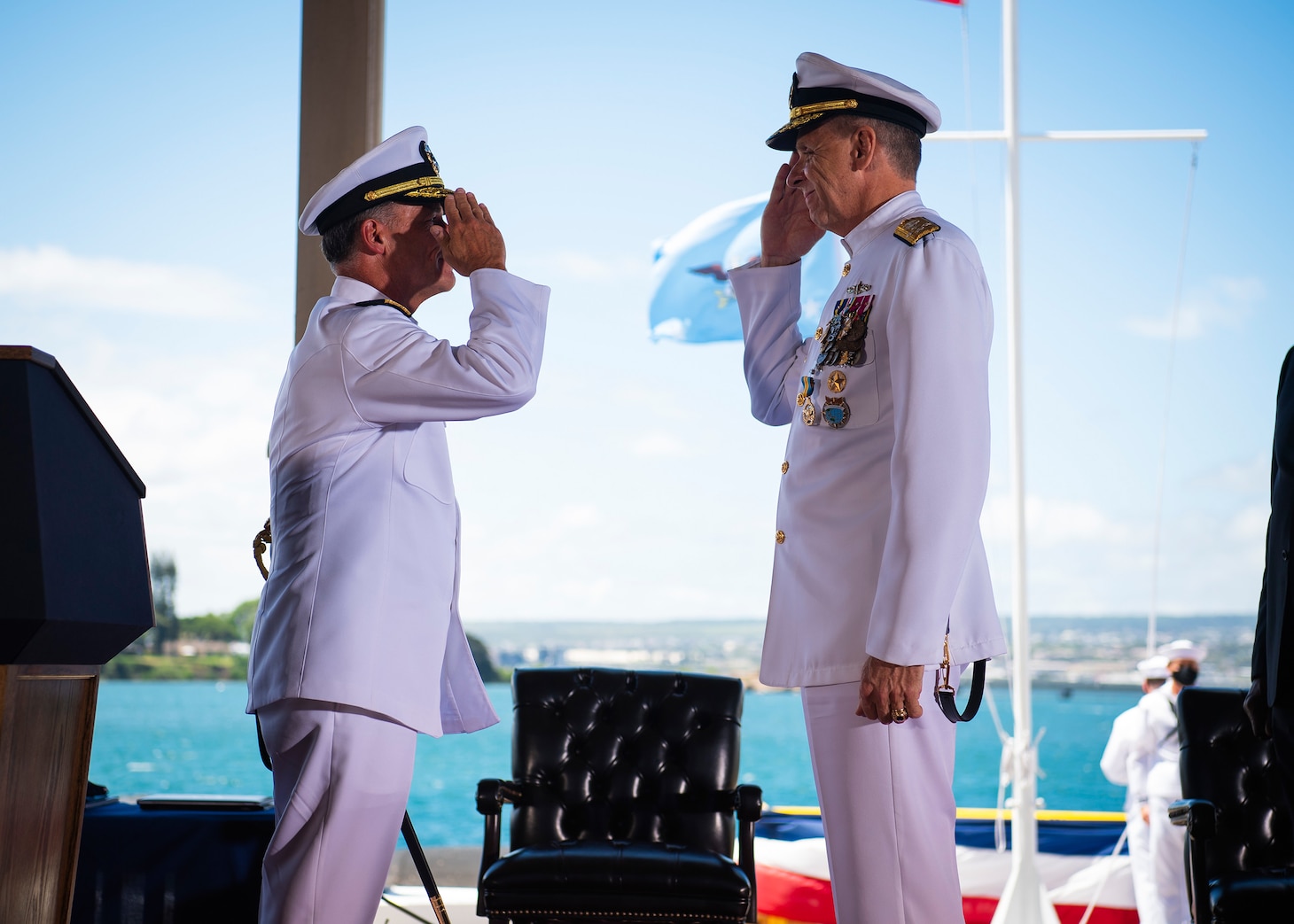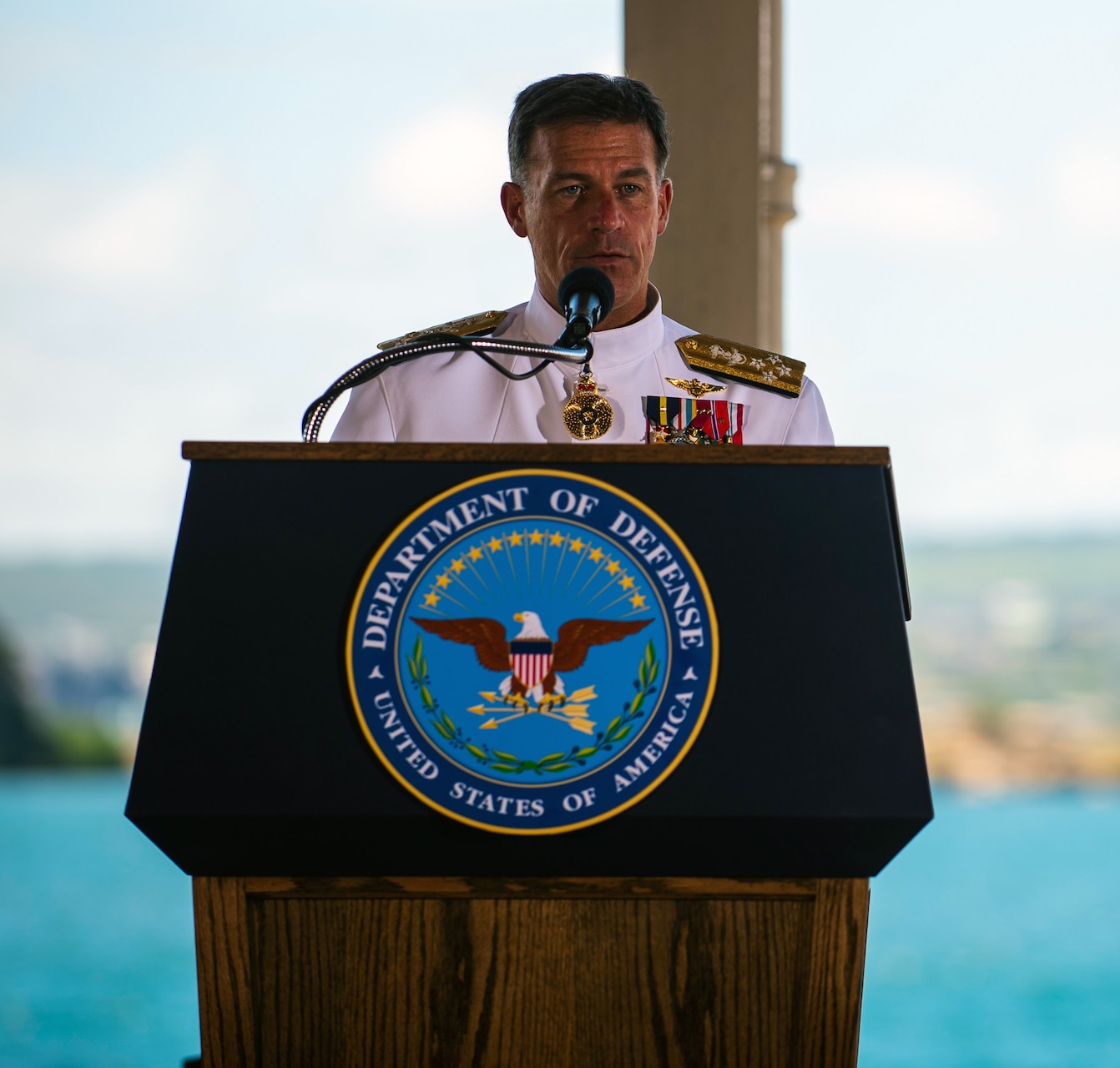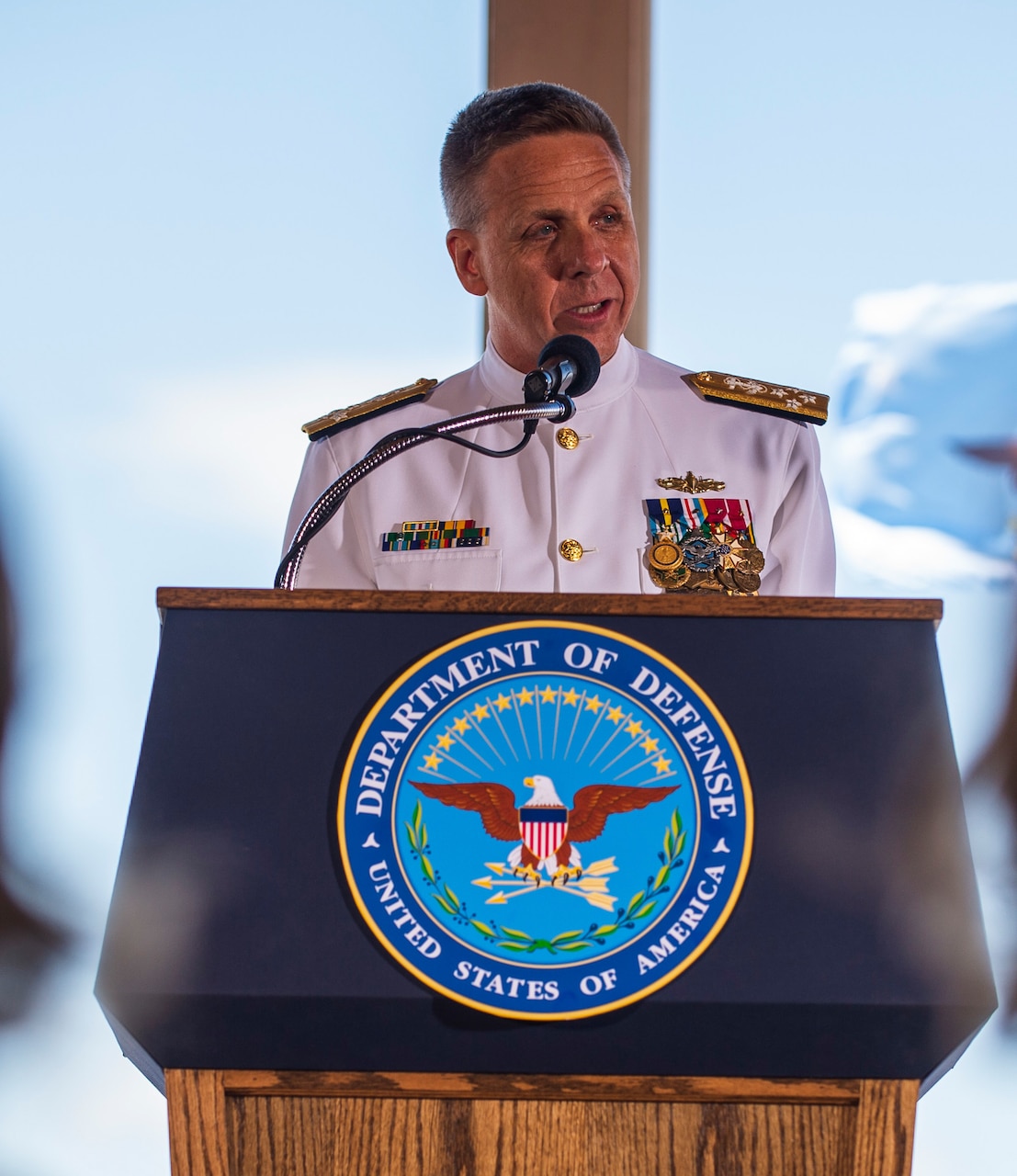
Aquilino becomes the 26th Commander of USINDOPACOM, the nation's oldest and largest combatant command. As the USINDOPACOM commander, he is charged with leading more than 380,000 Soldiers, Sailors, Marines, Airmen, Guardians, Coast Guardsmen, and Department of Defense civilians and is responsible for all U.S. military activities in the Indo-Pacific, covering 36 nations, 14 time zones, and more than 50 percent of the world's population.
The Indo-Pacific region is the U.S. Department of Defense's priority theater for U.S. national security. In his remarks, Davidson noted the continued challenges in the region.
Davidson thanked the service members who have been at the forefront of defending liberty throughout the region, while also recognizing the crucial role our allies and partners have played in maintaining a free and open Indo-Pacific.
"We have spent much of our time at INDOPACOM focused on strengthening our alliances and enhancing our emerging partnerships across the Indo-Pacific region," noted Davidson. "The United States is deeply committed to advancing and expanding these vital relationships further to help promote our collective peace and prosperity while enhancing security and stability in the Indo-Pacific."
Secretary of Defense Lloyd J. Austin III, who presided over the ceremony, praised Davidson's tenure as the USINDOPACOM commander and his more than 38 years of service.
"Admiral Davidson has done the nation a great service with his focus on deterrence in the region and the investments he's made in our network of allies and partners," said Austin. "The Indo-Pacific Command is better prepared, better trained, and better equipped today than it ever was.

"You've always believed in something bigger than yourself, and you've put your life on the line to protect the country you love. It is my honor to thank you for your lifetime of distinguished service," stated Austin.
Austin said today's rapidly changing environment is going to demand new thinking and action from the Defense Department to create an integrated deterrent across all realms of potential conflict.
Austin also addressed the many challenges facing the region and his confidence in Aquilino's leadership to address those challenges.

"Your new commander knows the stakes, he knows the people, and he knows the challenges," said Austin. "Admiral Aquilino, you are the right leader at the right time."
Aquilino, who was previously the U.S. Pacific Fleet commander, acknowledged USINDOPACOM's critical role in providing regional peace and security.
"The Indo-Pacific is the most consequential region for America's future, hosts our greatest security challenge, and remains the priority theater for the United States," said Aquilino. "We will compete to achieve our national interests, cooperate where we can, and confront where we must to ensure we maintain a Free and Open Indo-Pacific."
Aquilino emphasized he will continue to focus on working alongside allies and partners to address collective security issues.
General Mark A. Milley, the Chairman of the Joint Chiefs of Staff, reflected on the significance of Davidson's service of leading the joint force in the region and passing the title of commander to Aquilino.
"The Indo-Pacific is the globe's crossroads. We the United States of America, and your Joint Force, safeguards the transit of the goods and information that keep the world running," said Milley. "We are a team of teams and this country, as well as the many nations who are represented here today, are thankful for Phil's leadership and look forward to the guiding hand of Adm. Aquilino to bridge the Indo-Pacific into the future."
During the ceremony, Davidson was presented with the Defense Distinguished Service Medal, and Aquilino was presented the Distinguished Service Medal. Their spouses, Tracy Davidson and Laura Aquilino, were both presented the Distinguished Public Service Award.
USINDOPACOM protects and defends, in concert with other U.S. Government agencies, the territory of the United States, its people, and its interests. With allies and partners, USINDOPACOM is committed to a free and open Indo-Pacific region by promoting security cooperation, encouraging peaceful development, responding to contingencies, deterring aggression, and, when necessary, fighting to win.






